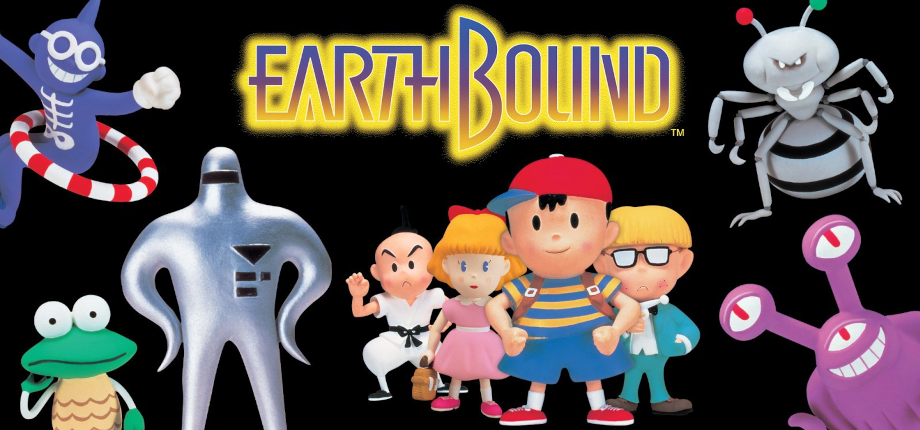
EarthBound
EarthBound’s journey from notorious commercial failure to beloved and influential classic is so embedded in the gaming zeitgeist that I thought I had essentially experienced the entire game indirectly. As it turns out, that’s not possible – even more so than with most games. You can watch all the footage you like of its characters using baseball bats and slingshots to combat living road signs and parody cultists against psychedelic backgrounds. You can know exactly how the final boss fight plays out. You can read every crackpot Internet theory analyzing the plot. Even then, the game is so idiosyncratic and creative that it must be played to be believed.
For better or worse, every aspect of EarthBound feels like it’s being made up and willed into existence on the spot. The narrative catapults through as many settings and plot devices as it can think of, so the mood is naturally inconsistent. The quality of the dialogue is perhaps the only constant. You’ll want to track down every NPC just to see what they have to say, because it’s guaranteed to be something fascinating. The battle system, while being superficially a copy of Dragon Quest, has its own share of quirkiness, with a near one-to-one ratio of gimmick fights to standard ones. Both the world and the combat are further enlivened by a wide selection of funky, memorable music tracks. They’re also made even stranger by sound effects that were seemingly chosen at random.
The downside of all of this unrestrained creativity (aside from the rudimentary visuals) is that stream-of-consciousness game design can be more frustrating than stream-of-consciousness narrative. The genre conventions that EarthBound often defies were sometimes in place for a reason. For every good idea, like the immediate surrender of enemies to an over-leveled player, there’s a terrible one, like the realistically delayed process of inventory storage. It’s also clear that little consideration was put into gameplay balance. The player’s party size fluctuates regularly without enemy difficulty adjusting to match, and battles are heavily RNG-based, often relying on most enemies having a potential action that literally does nothing. The ramshackle construction is certainly annoying, but it arguably reinforces the game’s singular identity, and that identity is ultimately the reason to play it.